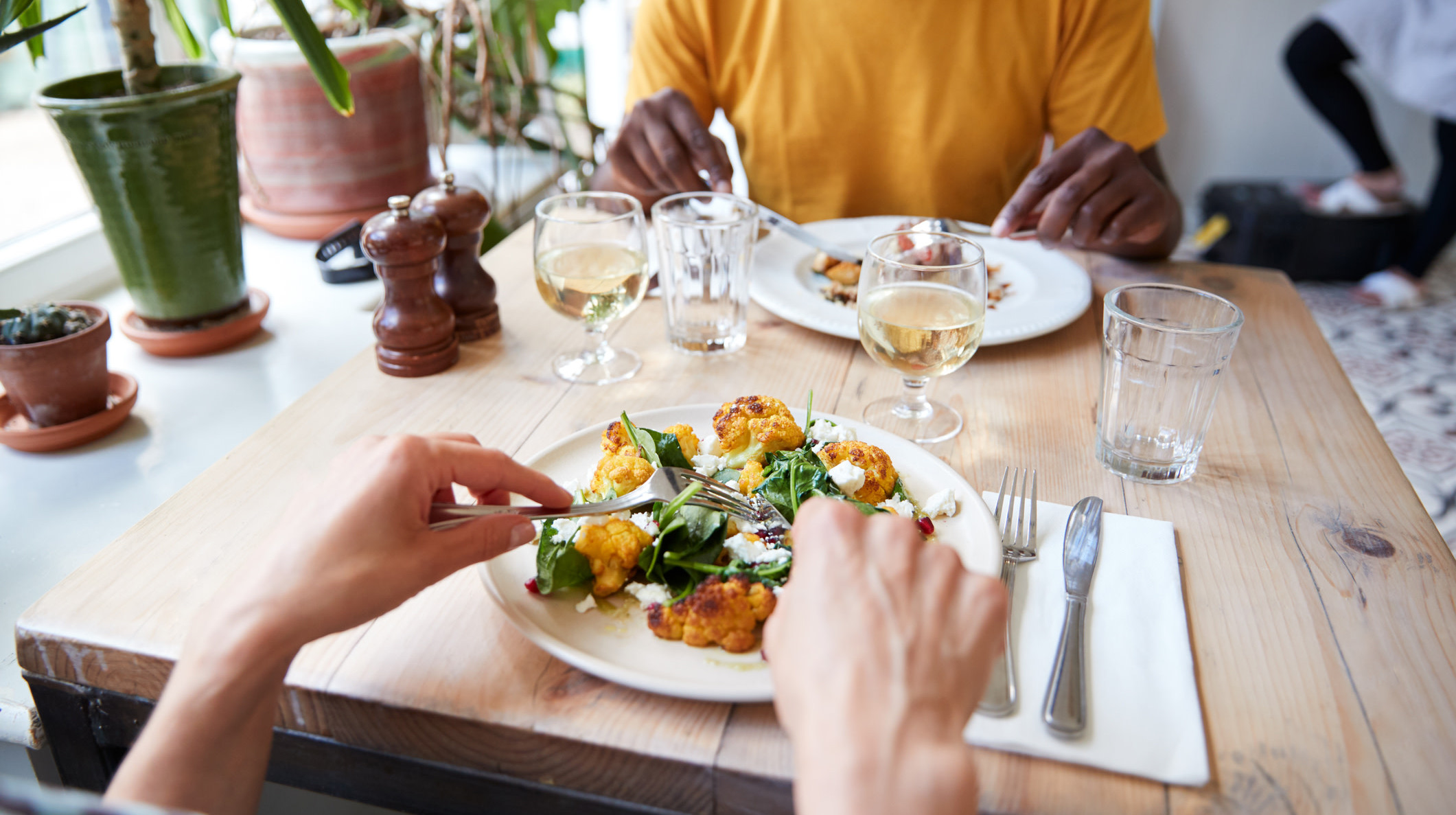Surprise! People Like A Free Meal On Dates
There's been much hand-wringing this week on social media about the concept of—I'm so sorry—"foodie calls," when people go on dates they're not particularly interested in just to score free food. The practice recently got the full what-does-it-all-mean treatment in The Atlantic, and like a sudden summer downpour washes earthworms across asphalt, the article flushed out the anti-feminist Twitter eggs en masse. (No matter that the article mentions men do this too.)
Aside from anecdotal evidence, The Atlantic piece cites the results of a survey published in the journal Social Psychological and Personality Science that found roughly a quarter of 1,000 women surveyed said they'd engaged in such behavior. But contrary to what people like this guy posit, it's actually women who espouse more traditional gender roles who engage in this behavior. That makes sense: True feminists would probably offer to pay their own way on a date.
But regardless of the gender of the person enjoying the free food, is the concept really so abhorrent? Much of the discussion around "foodie calls" frames this as cheating, as subterfuge, as diabolically underhanded. But it's a practice as old as the dawn of time: sitting through something relatively boring because there's free food involved. It's how offices get you to attend meetings, how time-share companies get retirees to sit through sales pitches, and how art galleries lure you in to weird conceptual video shows. ("I don't know what the hell this is," you think, staring at what is roughly a wall-sized projection of a Windows screen saver, nibbling on bruschetta and drinking boxed wine.)
I'd bet that most people engaging in "foodie calls" aren't doing so as some type of an evil plot to never spend money on food; the calculation is more subtle. You're sitting bored at home, your Tinder match proposes a happy hour meet-up, and even though you're not madly in love with that person, you show up and allow them to treat you to some food. I'm not saying this is model behavior. But it hardly seems to indicate that women are the callous and gold-digging freeloaders critics are making them out to be. I suspect The Atlantic article just serves as fuel for daters who want to believe that there's something or someone to blame for their frustration besides plain old hard luck.
